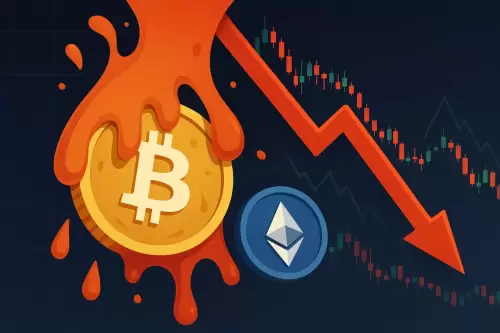 |
|
 |
|
 |
|
 |
|
 |
|
 |
|
 |
|
 |
|
 |
|
 |
|
 |
|
 |
|
 |
|
 |
|
 |
|
Cryptocurrency News Articles
Judge Rules Rivetz (RvT) Token Sale Was an Unregistered Securities Offering
Oct 02, 2024 at 12:00 am
A federal judge has ruled in favor of the United States Securities and Exchange Commission (SEC) against Rivetz Corp and its CEO

A federal judge has ruled in favor of the United States Securities and Exchange Commission (SEC) against Rivetz Corp and its CEO, Steven Sprague, concerning their 2017 Initial Coin Offering (ICO).
The ruling concluded that the company’s sale of the Ethereum-based Rivetz (RvT) token constituted an unregistered securities offering.
The court ordered the SEC to collaborate with Sprague to determine the necessary relief. This could include financial penalties or other actions. The deadline for this is set for Oct. 22.
The outcome may influence other cases involving unregistered token sales.
In a Sept. 30 order, Judge Mark Mastroianni ruled that Rivetz and Sprague violated securities laws by selling RvT tokens without registering them. The company raised $18 million from over 7,200 investors, with a significant portion being U.S. residents. The RvT tokens were marketed as part of a security ecosystem that Rivetz planned to develop, but the project remained incomplete.
Sprague had argued that the RvT token was a software product and not a security. However, the court found that the Rivetz token met the criteria of a security based on the Howey Test. The SEC had argued that the tokens were sold with the expectation of profit derived from the company’s efforts to build its platform.
The Howey Test determines whether a financial product qualifies as a security. In this case, the court found that Rivetz promoted the RvT token as an investment tied to the company’s future success. Judge Mastroianni noted that the tokens “had no additional uses or inherent value” as the company had not yet developed the promised security ecosystem. This indicated that the token’s value was entirely dependent on Rivetz’s progress, fulfilling the test’s requirements.
The court emphasized that the RvT tokens functioned only as ERC-20 tokens on the Ethereum blockchain and lacked any utility beyond this, reinforcing the finding that they were securities under U.S. law.
The SEC filed its lawsuit against Rivetz and Steven Sprague in September 2021. The lawsuit claimed that the ICO violated securities laws by selling unregistered tokens. This case is part of the SEC’s ongoing actions against crypto companies that failed to follow U.S. regulations during their ICOs.
This case is similar to another SEC action against Opporty International. In that case, the court found the company and its founder had sold unregistered securities during their ICO, raising $600,000.
Steven Sprague has not provided any comments regarding the court’s decision. The court’s ruling may influence future decisions by crypto companies considering ICO offerings.
Disclaimer:info@kdj.com
The information provided is not trading advice. kdj.com does not assume any responsibility for any investments made based on the information provided in this article. Cryptocurrencies are highly volatile and it is highly recommended that you invest with caution after thorough research!
If you believe that the content used on this website infringes your copyright, please contact us immediately (info@kdj.com) and we will delete it promptly.






























































